The choice between roofing shingles and a metal roof largely depends on your individual circumstances and preferences, as both options have their own advantages and disadvantages. Here are some of the potential benefits of roofing shingles:
- Cost: Roofing shingles are generally less expensive than metal roofing, which can be important if you’re working within a tight budget.
- Aesthetics: Shingles are available in a wide variety of styles, colors, and designs, which can help you achieve the look you want for your home.
- Repairs: If shingles are damaged or need to be replaced, it can be relatively easy to repair or replace individual shingles, without having to replace the entire roof.
Contents
Roofing shingles
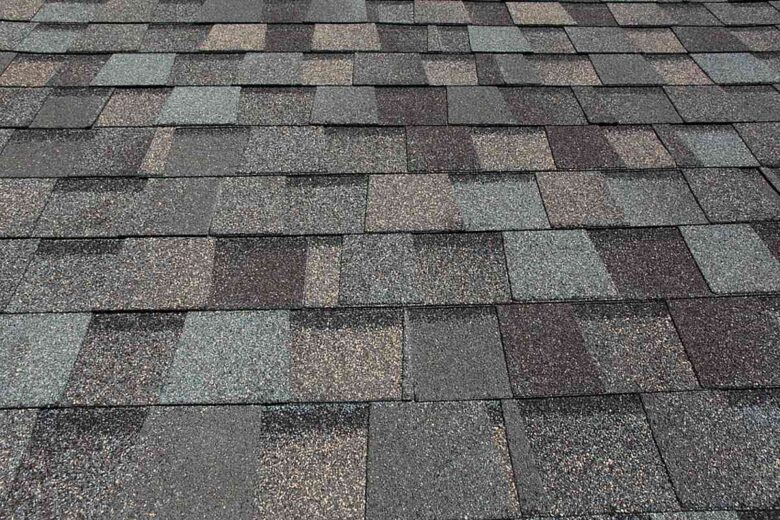
Source: thespruce.com
Asphalt shingles are a type of roofing material that is commonly used in residential and commercial construction. They are made up of a base material, typically fiberglass or organic felt, which is coated with asphalt and then topped with ceramic granules to provide protection from the sun’s UV rays.
Asphalt shingles come in a wide variety of colors, shapes, and sizes, and are designed to mimic the look of other roofing materials such as slate, wood shakes, or tile. You can check the color options on the Technonicol website. They are a popular choice for roofing because they are relatively affordable, easy to install, and can last for 30-50 years with proper maintenance.
There are two types of asphalt shingles: fiberglass and organic. Fiberglass shingles are made from a fiberglass base mat and are coated with a layer of asphalt, while organic shingles are made from a felt base mat that is saturated with asphalt to make it waterproof.
Both types of asphalt shingles have their own advantages and disadvantages, and the choice between them will depend on your individual needs and preferences. It’s a good idea to consult with a professional roofing contractor to help you decide which type of asphalt shingle is right for your home or building.
Metal roofing
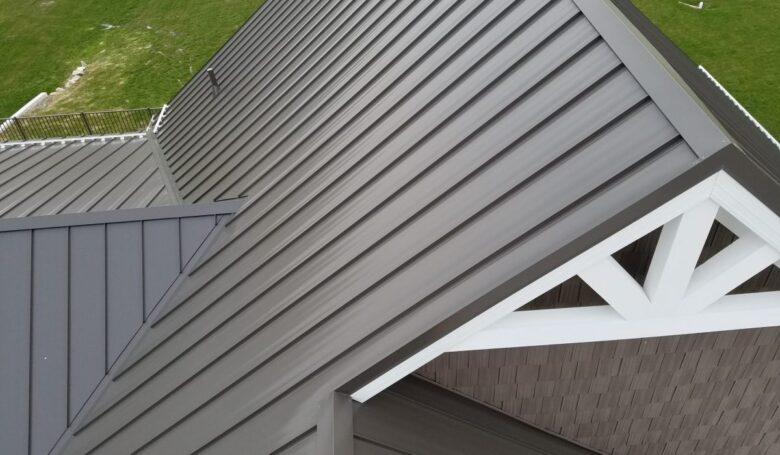
Source: londonecometal.com
Metal roofing is a type of roofing material that is made from metal sheets or tiles. It is commonly used in both residential and commercial construction and is known for its durability, longevity, and low maintenance requirements.
Metal roofing can be made from a variety of metals, including aluminum, copper, zinc, and steel. Steel is the most commonly used material, due to its affordability and availability, and can be coated with zinc, aluminum, or a combination of the two to prevent rust and corrosion.
Metal roofing is available in a wide range of styles, colors, and finishes, and can be designed to mimic the look of other roofing materials, such as wood shakes, tiles, or slate. It is often installed in large sheets or tiles, which can be attached to the roof using screws or clips.
One of the primary advantages of metal roofing is its durability. A properly installed metal roof can last for 50 years or more and is resistant to fire, wind, and hail. Metal roofing is also energy-efficient, reflecting heat away from the roof and helping to keep the interior of the building cool.
However, metal roofing can be more expensive than other types of roofing materials, such as asphalt shingles. It can also be noisy during rainstorms, although this can be mitigated by installing insulation or other sound-dampening materials.
Overall, metal roofing can be a great choice for homeowners or building owners looking for a durable, low-maintenance, and energy-efficient roofing option. It’s a good idea to consult with a professional roofing contractor to help you decide if metal roofing is right for your home or building.
Which Roofing Material Is Best?
Let’s compare them in depth.
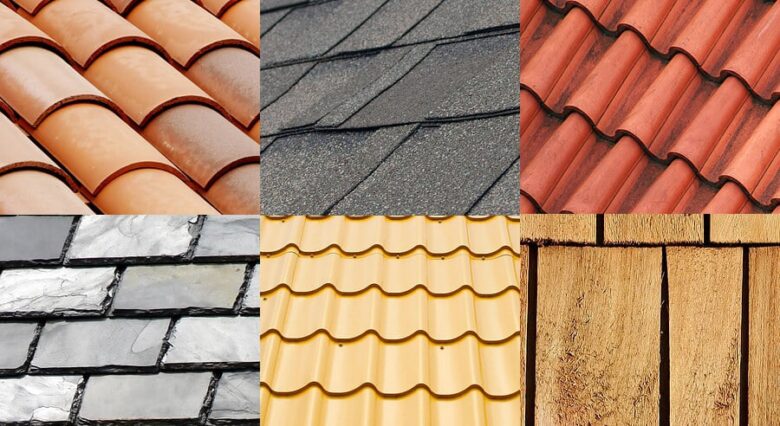
Source: iqvinc.com
Maintenance
Metal roof
Maintaining a metal roof is generally less of a hassle compared to maintaining an asphalt roof, but it still depends on the roof’s angle and the expertise of the person doing the work. It is advisable to consult a professional, but it is possible to maintain a metal roof without one. Repairing a metal roof can be more challenging because it requires specialized metalwork, and using subpar materials in certain climates may cause corrosion and other types of damage. Overall, metal roofs require more maintenance than asphalt shingle roofs.
Asphalt shingles
Asphalt shingles are cost-effective and easy to maintain, but they often require more maintenance than metal roofs. They can slip, disintegrate, and fall off due to the elements, and replacing them involves sliding and nailing down new ones. It is always recommended to seek the assistance of a professional roofer for safety purposes.
Expected Lifespan
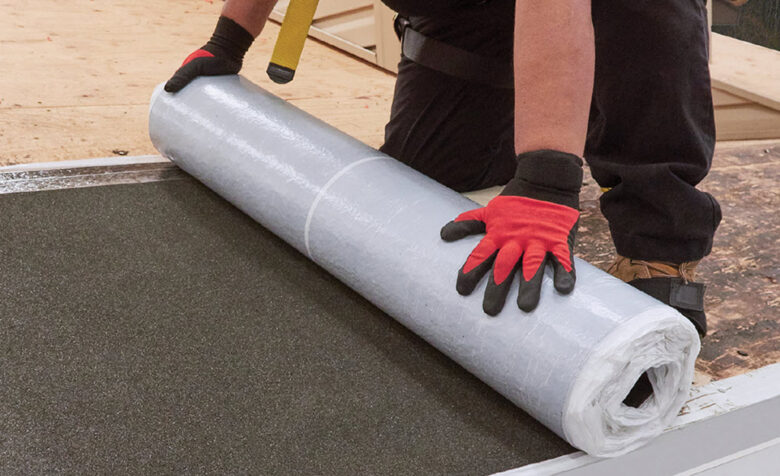
Source: homedepot.com
Metal Roofing
Under normal use, a metal roof can last for more than 50 years, though its lifespan will depend on the conditions to which it is exposed. While most estimates range from 40 to 70 years, newer metal roofing materials are anticipated to have an even longer lifespan as technology advances.
Asphalt Shingles
Shingle roofs generally have a slightly shorter lifespan than their metal roof counterparts, lasting between 40 and 50 years. Weather conditions, particularly precipitation and wind, can cause asphalt shingles to deteriorate more quickly, particularly if they have already been exposed to sunlight. Regular maintenance, including shingle replacement and patching roof holes, can help to extend the life of your home or project.
Cost

Source: fool.com
Metal Roofing
Compared to asphalt shingle alternatives, metal roofing usually comes at a higher cost per square foot, often two to three times more. As of early spring 2021, metal roofing was estimated to cost between $8 and $16 per square foot, with material cost fluctuations having a more significant impact on the overall cost.
Asphalt Shingles
In general, asphalt shingles cost between one-third and one-half of what metal roofing would cost. For the construction of an asphalt shingle roof, a home builder can typically expect to pay between $2 and $6 per square foot. Unlike metal roofing, shingle costs are usually less susceptible to material cost fluctuations.
Installation
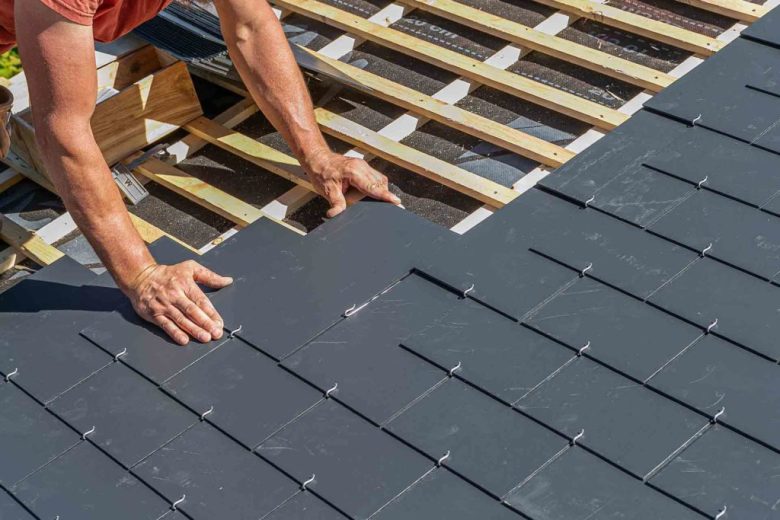
Source: checkatrade.com
Metal Roofing
The installation of metal roofing panels can be challenging due to their weight and size. It’s recommended to consult and hire a professional contractor, but even DIYers can benefit from an extra set of hands. Most modern metal roofing systems have an interlocking edge system, so it’s crucial to pay attention to details and review instructions before starting the project.
Asphalt Shingles
Asphalt shingles are easier to install than pricier metal roofing options, partly due to the cost and difficulty of getting metal roofing into place. Shingles can be installed with ease, and any roofing contractor or builder will be familiar with the process.
Conclusion
Ultimately, the choice between roofing shingles and a metal roof will depend on factors such as your budget, your aesthetic preferences, and your specific needs and circumstances. It’s a good idea to consult with a professional roofing contractor to help you make an informed decision.
